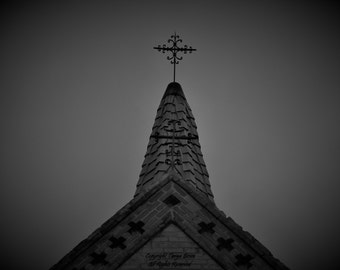Reservation (noun): an arrangement to have something (such as a room, table, or seat) held for your use at a later time; a feeling of doubt or uncertainty about something; an area of land in the U.S. that is kept separate as a place for Native Americans to live.
So what reservation are we talking about here? Definitely not the first option, but couldn't either of the seconds work? After all, what is a reservation? Isn't the setting aside of land for a certain group of people a show of doubt or uncertainty about their place in the rest of the country? Or are we talking about the idealistic reservation here? An idealistic reservation is what Americans like to imagine an Indian Reservation is really like: a place where one culture can live together, unaffected by modern day America, and continue to practice their traditional ways. The Absolutely True Diary of a Part-Time Indian has dragged that image down, ripped it off of the wall and torn it into a million different pieces. An Indian Reservation is not the place America wants to see it as.
So where does that leave the discussion of a community as a reservation? Can a community be a reservation? A place where a similar people can come together and live, a place to be happy? Look at Chicago: China Town and Little Italy, Chicago's South Side Irish and it's North Side Germans. Aren't these all reservations in of themselves? People of a similar background and culture grouping themselves together, not because they were forced to, but because they feel safer and more comfortable with their own people?
So where does that leave me? I am an immigrant into the South Side, I was born here but my parents came from far away (in Beverly terms): Forest Park and Evanston. In a close-knit community we lack the assets that many other residents have: their parents were born and raised in Beverly, as were they. In many families, generation after generation has seen their life go by here. Everyone knows everyone else. Everyone belongs to the same church, everyone goes to the same school, high school choices are predictable. (For the sake of this post, I'm going to refer to the area I live in as Beverly, not all of it)
So what happens when you throw a Junior into the mix? Someone who doesn't really belong? Someone who acts and thinks differently, who does the unexpected and is a constant outsider? Someone who leaves the community school, doesn't go to any of the usual high schools, doesn't hang out at the Seven-Eleven or with the right people at Munroe and Beverly? What happens to that person? Like Junior, they are bullied, isolated, alienated, fated to always be an outsider. Sure, there may be a Rowdy or two in their life, but for the most part, they are on their own. For them, their reservation become something that hurts them, something that is comfortable and familiar but also deadly, something that will try to put them down and make them hurt. They both love and hate their community, desperate to escape but terrified of leaving what they have always known.
So what do they do? They find a basketball team; a group of people who will accept them no matter who or what they are, who will love and accept the loner, united as they are in their passion. Junior creates his own reservation in the gym and with his team; basketball becomes his safe place, somewhere he can escape to and be with his own people, people who share a culture and a passion and are more than just a group of people together, they are a people. If Beverly is my world, MPTG is my reservation.
A physical reservation is deadly; look at what happened to Junior. But a metaphorical reservation can be a person's savior. It can rescue them from the oppressive physical reservation, a thing that can kill a person, both in spirit and in body. The reservations a person creates or finds in a group give them somewhere they can be themselves, a place that they don't have to fear bullies, a place where they have friends who value them for who they are, because those friends know who they are better than most, since they have no reason to fear being themselves around their people. It's a place where they are completely comfortable, a place of solace, a place of peace and happiness.
I can empathize with Junior, though he definitely has it worse than I do. We both found ourselves a reservation, him in his sport, me in my art. It is one of the few places in the world we feel truly happy, one of the few places where we don't have to fear others for their words can do to us, a place where we don't care how different we are, a place that is our safe house. It is our place, our reservation.




